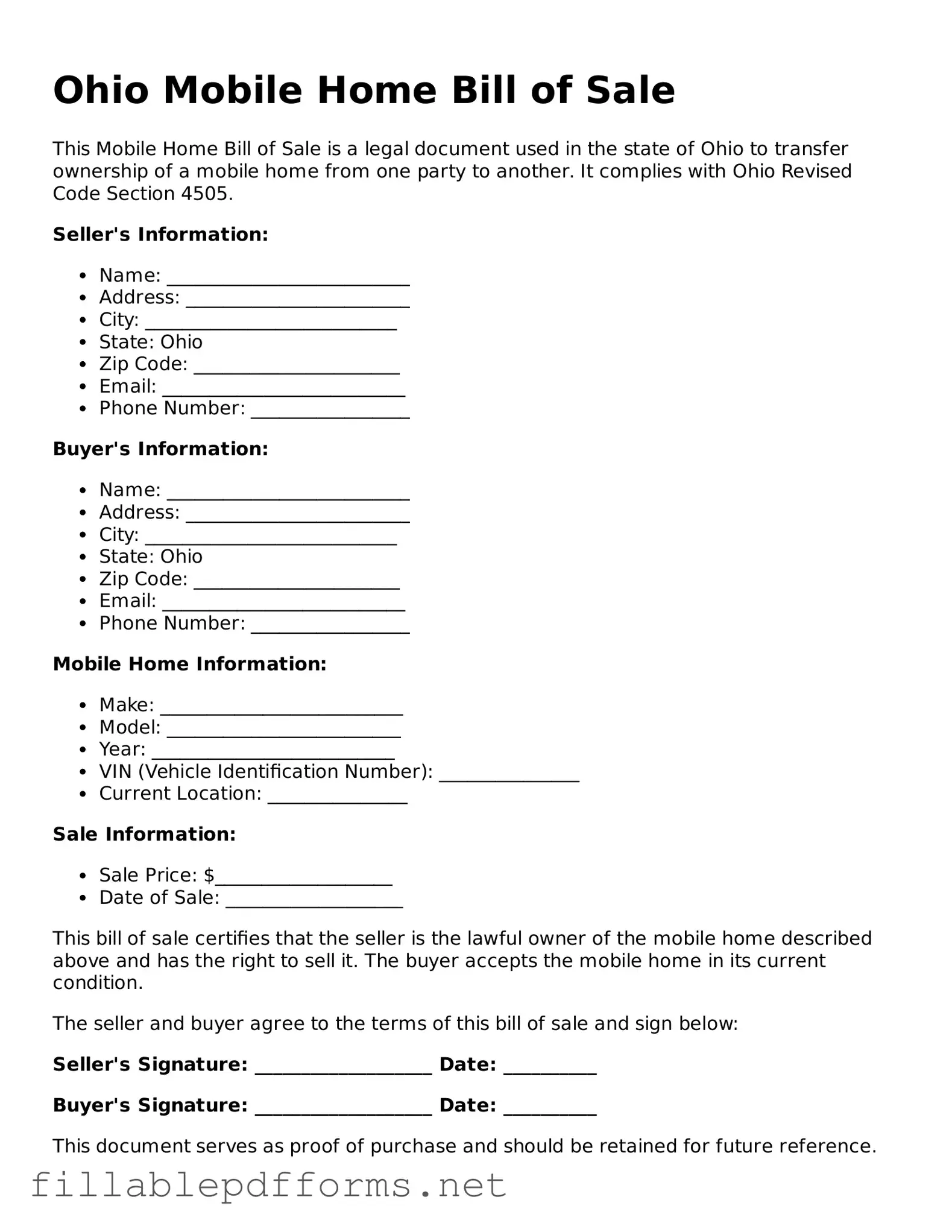Attorney-Verified Mobile Home Bill of Sale Form for Ohio State
The Ohio Mobile Home Bill of Sale form is a crucial document that facilitates the transfer of ownership for mobile homes in Ohio. This form serves as proof of the sale and includes important details about the buyer, seller, and the mobile home itself. Understanding its components can help ensure a smooth transaction and protect both parties involved.
Launch Editor Here

Attorney-Verified Mobile Home Bill of Sale Form for Ohio State
Launch Editor Here

Launch Editor Here
or
▼ Mobile Home Bill of Sale PDF
Almost there — finish the form
Complete Mobile Home Bill of Sale online fast — no printing, no scanning.